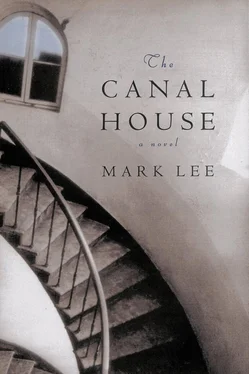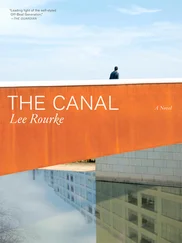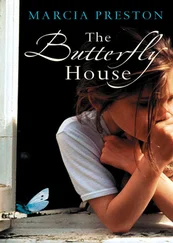“Have you told Paul’s girlfriend?”
“Ellen’s crying in her tent. She won’t come out. If there really was a crash and Paul is dead, I might have to send her home.” Turning away from me, Julia tossed the gloves into a pail and began to scrub her hands. “When I began working for Médecins Sans Frontières, a French doctor told me that you should never like anyone you meet at a relief camp. You should never admire another person or allow yourself to care. Because chances are your new friend will die or go away or you’ll lose them somehow.”
A lock of hair fell across Julia’s forehead and she pushed it away. I could have told her the truth at that moment—that I was worried about Daniel—but pride held me back. I already knew that you weren’t supposed to care about the people you met in relief camps or anywhere else. I saw myself as a master of that particular discipline while most people were still learning the trade.
“Maybe they’re right.”
“Yes. It’s possible.” Julia turned away from me and picked up a basin filled with surgical instruments. “Who’s next?” she asked Fiona.
“The twelve-year-old girl with shrapnel in her leg.”
“Yes. Of course. Did you check her this morning?”
“She’s hypotensive. Febrile. Looks shocky.”
“Did you talk to her? Was John there to translate?”
“She said she doesn’t want to lose her leg. If she has no leg, she’s useless and no one will ever marry her.”
Julia hesitated for a moment, then poured off the disinfectant. She picked up two scalpels, a steel probe and tweezers, and carefully placed them on a sterile bandage. I knew what she was thinking—save the life in front of you, concentrate on the routine. “Well then, we’ll have to try very hard.”
Isaac was waiting for me when I left the medical tent. He looked happy and I figured that no one had told him about the crash. Daniel’s watch was still hanging from the twine around his neck.
“Are you going away in the plane?”
“That’s right.”
“Will you see Mrs. Joan and Mr. Daniel?”
I should have been ready for a question like that, but I felt like I’d just been punched in the chest.
“I’m going to see them in Kampala. We planned to have dinner together.” I slipped on my sunglasses so that the boy couldn’t see my eyes. “You’re a good friend, Isaac. You guided us all the way.”
ON THE WAY BACK to Entebbe, Viltner pointed at landmarks and shouted questions: Do you remember this lake? What about that mountain? I looked out the window at the countryside and saw nothing but dry grass and an occasional village. It seemed as if the Cessna had been absorbed by the landscape. When we reached the airport two bush pilots were waiting there to ask questions. They told me that Paul Rosen’s father was flying in from New York on a chartered jet.
After spending the night in a small hotel near Lake Victoria, I decided to return to London. Everyone in the Cessna was probably dead and I didn’t want to be there when they found the bodies. I took a flight to Kenya and started drinking little bottles of vodka the moment the plane left Nairobi. I hadn’t known Daniel very long and I was surprised how much his death bothered me. It was only when we were flying over North Africa that I admitted the truth to myself: I admired Daniel and hoped we could become friends. I hadn’t made many friends since I’d left Los Angeles. It was easier if I just did my job.
I remained in my seat when we reached Heathrow airport and was the last person to get off the plane. Carter Howard and John Scofield, the Washington Post ’s London bureau chief, were there waiting for me and the first thing Scofield said was, “Do you have pictures?”
They drove me into London. Streetlights. Taxis. A blond girl on a billboard telling me that “paradise is a plane ticket away.” When we reached the office Ann Weinstein took my film and developed the photographs from my Nikon. I gave the story to Scofield, then did a phone interview with a Newsweek reporter in New York.
“Is that all the film you have?” asked Carter. “You only took two rolls?”
“There’s another roll in the camera, but that’s for the Telegraph .”
“But you don’t work for them.”
“Daniel does. He’s on contract.”
Scofield turned to Carter Howard and rolled his eyes slightly. Go ahead, he seemed to be saying. Tell your employee that we want an exclusive.
“Don’t give me any crap about this,” I said. “Daniel’s my friend and I’m going to file his story.”
I left Park Street an hour later and took the underground to the Telegraph offices. Daniel’s young foreign editor was on vacation, but I found an experienced rewrite man named Stubbs. He sent my film downstairs, then interviewed me and turned my mumbled replies into a coherent article. When that was done we went to a pub and Stubbs ordered two pints of bitter.
“This is all quite unfortunate,” he said.
I shrugged my shoulders but didn’t speak. Quite unfortunate.
“Mr. McFarland was the real thing. He always focused on the facts, the little details. He understood the beauty of a simple declarative sentence.”
The clerk at the Ruskin Hotel gave me the noisy room near the second-floor toilet, but I flopped on the bed and slept for a long time. When I woke up, I bought copies of the Telegraph and the Washington Post . Both papers gave a front-page position to the hostage story with a sidebar about the lost Cessna. I ate four bags of potato chips and drank four whiskeys at a pub, then went back to bed.
The phone began ringing, but I felt like I was swimming through an underwater tunnel, trying to find a patch of light that would lead me to the surface. I breathed deeply, opened my eyes, and then it was morning again and the phone near the bed was still ringing.
“Yeah?”
I heard Ann Weinstein’s voice, bright and cheery. “He’s alive.”
“What?”
“Daniel’s alive. It’s a miracle, really. Everyone else died in the crash.”
I pulled on some clothes and hurried down to the Newsweek offices. All they could tell me was that Daniel was at a rural clinic and that Paul’s father was flying north in a private plane. Throughout the day there were random particles of news, mostly from the World Wildlife Fund office in Kampala. We learned that Paul Rosen had discovered a group of Sudanese soldiers butchering an elephant and when he had swooped down to investigate, the plane had been hit with a rocket-propelled grenade. Daniel had broken his forearm and several ribs but was in fairly good condition. He had been flown back to Entebbe and taken to Nsambya Hospital in Kampala.
All of us sat in Carter’s office waiting for Daniel’s phone call. We expected him to sound tired and sad, perhaps a little fragile, but ready to tell us his story. When he didn’t call by eight o’clock London time, Ann contacted Nsambya Hospital. A nurse told her that Mr. McFarland had paid his bill and left the hospital.
During the next twelve hours, Daniel had gained access to a computer and a phone. He wrote one article about his interview with Samuel Okello and another about the Sudanese and the plane crash. All the publications he had contacted before leaving Rome were sent both articles. Daniel didn’t attach a personal note or any other indication that he had recovered from the accident. John Scofield contacted the New York desk, then called a German editor at the Frankfurter Allgemeine . No one had actually spoken to Daniel. After completing his job in a professional manner, he stopped sending messages.
It was a slow news week and Daniel’s articles got a fair amount of attention. In America, the media focused on Paul Rosen’s death. In Europe, the German government threatened to shut off aid to the Sudan unless they allowed the United Nations to conduct an independent investigation.
Читать дальше












